- Home
- Franklin W. Dixon
The Secret of the Lost Tunnel Page 8
The Secret of the Lost Tunnel Read online
Page 8
“I still think that round thing’s an egg!” Chet persisted.
“Looks to me,” Joe observed, “as if we’re still behind the eight ball so far as finding the treasure is concerned. ‘Find coin in iron’ can mean a dozen different things.”
“That’s right,” Frank agreed. “It might mean the money is buried in an iron box, or hidden in an iron mine, or in an old forge.”
“It might be in an old blacksmith shop,” Joe suggested. “They had one on the plantation, didn’t they, General Smith?”
“Yes,” the officer replied. “Every big plantation had a blacksmith shop. Wait—I have a map here of the old Smith place.”
He pulled it from a desk drawer, and the boys eagerly scanned it. The map was an antiquated form of blueprint, drawn on heavy linen paper and well preserved. The layout of the buildings was clearly delineated, with the tiny, handwritten word blacksmith barely discernible where the general’s finger pointed.
The Hardys were eager to investigate the spot at once, even to work through the night, but the general would not hear of it.
“Morning will be time enough,” he insisted. “Now that we know our enemies don’t have the secret, there’s no need for such speed. Furthermore, maybe the police will have rounded up the men by then and we won’t have to worry about their spying on us.”
The Hardys agreed with their host that the investigation could wait until the following day, but they expressed doubt that the gang would be caught easily.
Claude, hearing the story, declared he would stay up all night and guard the house against a visit by the thieves. It was finally decided that the boys would stay on watch until one o’clock, then the orderly would take over.
That evening at dinner the Hardys ran Chet a close race on second and third helpings of Claude’s superb cured ham and pecan pie.
All was peaceful during the night, and early the next morning the boys and the general were ready to start for the old plantation.
Before leaving, General Smith called the police to inquire if any of the gang had been caught. He was told that the thickly wooded area was being combed and all highways were being watched but so far the culprits were still at large. The abandoned black sedan had been traced by its license and identified as the property of a man who lived in a town near Bayport.
“A beautiful day!” the general observed as they drove along. “But we’ll have to be on the watch every moment.”
“Not like the day when Beauregard Smith hid the fortune,” Joe said, “with the distant thunder of artillery and the smell of powder in the air.”
Frank stepped on the brake and turned the car off the highway into the rutted lane that led to the plantation. Presently he pulled up in front of the weed-grown foundation of the old mansion itself.
They strode through the high grass toward the spot the blueprint had indicated as the plantation’s smithy.
“This is the place,” the general confirmed. He paced off the distance from the site of the barn.
“Nothing here but a lot of rocks,” Chet complained. “How are we going to find anything in this mess?”
“Put your camera down,” Frank suggested. “It’ll swing against one of those stones and get smashed.”
“That means you want me to work,” Chet said ruefully as he took the hint and removed the camera strap from around his neck.
Frank winked at his brother. “Full of deductions, isn’t he?”
“I gather from the old blueprint that the walls of the shop were ten feet high,” General Smith declared. “When the place was attacked, I suppose the walls fell in under a bombardment, so whatever was inside should be at the bottom of this rubble.”
“Let’s get at this pile,” Joe said, pointing to a heap of crumbling masonry.
In order to avoid a surprise visit by their enemies, General Smith suggested they take turns standing guard. He took the first shift.
The three boys pulled and hauled, removing stone after stone as they delved deeper into the ruins of the old shop. The general walked around and around the spot, keeping an eye out for Bush, Randolph, Smiley, or Junior.
“Wow! This is hard work!” Chet exclaimed as perspiration ran down his forehead and off the end of his stubby nose. “It’s going to take us years to find anything here,” he moaned, straining at another stone.
Nevertheless, he stuck to the job and the four worked with silent intensity as the sun rose higher and higher. Finally the officer called a halt, and the group sat down to eat the lunch Claude had packed for them. After a rest period, during which Joe remained on guard, work started again.
“Here’s a handle!” Frank said an hour later, grasping a wooden pole that extended out of the ruins.
“That may be part of the forge!” Joe called excitedly.
Further digging disclosed the rest of the furnace. Somewhat later Joe came upon the anvil, which was so heavy it took the concerted efforts of the four to lift it.
“Do you suppose the gold’s in this?” Chet asked eagerly.
“No,” Frank replied. “This is a solid piece of iron.”
As he spoke, Joe shouted, “Here’s an old rifle!”
“Now we’re getting somewhere!” Frank cried excitedly, recalling the stacked weapons on the coded message.
Feverishly the boys dug near the spot where the rusty old firearm had been exhumed.
At four o’clock Chet was ready to give up, when suddenly his hand struck something hard and smooth. He dug at it like a bulldog after a buried bone.
“I’ve found a box!” he shouted.
CHAPTER XIV
A Bombardment
JOE and Frank rushed to Chet’s side. The three lifted the heavy iron box out of the rubble.
“I’ll help you open it,” General Smith offered, as excited as the boys in anticipation of discovering the Civil War gold.
The officer picked up a flat stone, and with a mighty blow, knocked off one of the rusty hinges. Chet pulled up the lid as the others looked on, holding their breath in anticipation.
Inside the box were a dozen horseshoes!
“Gosh!” Chet cried, a pout of disappointment thrusting his lower lip forward. “Why would anybody put horseshoes in a strongbox?”
“Just for luck.” Joe grinned.
“Maybe they were used as weights,” Frank suggested hopefully. “Let’s see if there’s anything underneath them.”
Quickly lifting the horseshoes from the box, he found a piece of rawhide. Beneath it, in the bottom of the box, lay a sheaf of papers.
“This was probably the box where the blacksmith kept his records,” the general said as he read through the papers.
There were bills for barrels of nails, bars of iron, and other material used in the old shop. The last piece of paper read:From Enfield Arms Co., Berkley, Eng.
30 rifles
100 cannon balls
Taken to arsenal.
Seeing the word “arsenal,” General Smith’s countenance took on a look of renewed interest.
“So old Beauregard had his own personal arsenal! That’s news to me.”
“There wasn’t one on the blueprint,” Joe commented.
“It must have been one of the plantation’s secrets,” Frank said.
“I can understand why,” General Smith reasoned. “Whoever controlled the arsenal controlled the plantation!”
“I think this is a hot clue,” Frank spoke up. “The round designs on the message may have represented cannon balls. Those, and the stacked rifles, may have referred to the arsenal! If we could find it, we might discover the gold, or at least directions to it.”
“Where could the arsenal be?” Joe asked, puzzled.
“Probably a long distance from the plantation buildings,” the general reasoned, “and underground. In the first place, it would be dangerous to store explosives near the main buildings, and secondly, arms and ammunition would probably be in a secret spot. I’d suggest we go home and study the blueprint for clues. Also,�
� he added with a look at Chet, “Claude wouldn’t want us to be late for dinner!”
“General Smith,” Chet said, beaming, “I’d like to be in your army!” The boy picked up his camera. “But before we go, I want somebody to take a photo of me holding this clue.”
Chet posed by the box he had unearthed while Joe held the camera.
“This is the last one on the film,” Joe observed. “You’d better not move.”
But just as he snapped the picture, Chet sneezed. General Smith shook his head as he smilingly led the group to the car.
As they started off, Chet asked the officer where he could have his prints made up.
“The general store in Centerville does its own developing. If we drop them off now, you could probably pick them up tonight.”
“That’s great. I’ll get some more film too,” Chet said.
When they arrived home, Frank noticed a letter lying on the hall table. It was addressed to the Hardys. He opened it, frowned, and read aloud:“ ‘Hardy Boys,
Clear out and go back to Bayport if you want
to stay healthy. Kids who don’t mind their
own business end up in the graveyard.’ ”
The message was unsigned.
“Good night!” Joe exploded.
“S-somebody doesn’t like you,” Chet stammered.
“What’s the postmark?” General Smith asked, taking the envelope. “Centerville, eh?”
“Which means,” Frank reasoned, “that Bush or his men haven’t left town. Let’s call the police and see if they’ve arrested anyone.”
The chief informed the general, who telephoned, that no one had returned to the museum nor had anyone fitting the description of Randolph, Smiley, or Junior been picked up.
“So they’re still at large,” General Smith said reflectively as he reported to the boys. “Now that this note has come—”
“We’ll have to get Bush before he gets us!” Joe burst out.
“But we’ve got to act fast,” Frank added.
“I admire your spirit.” General Smith smiled. “Your plan of taking the offensive is in the best military tradition. An offense is sometimes the best defense. But we’ll have to be doubly alert.”
“I wish we knew what this Dr. Bush looks like,” Frank mused. “But all we know is that he has long legs and carries a black bag.”
“And probably has a number of aliases,” Joe added.
“I’d like to get a picture of the other half of him,” Chet remarked. “Which reminds me. I’ll run into town after dinner and see if my prints are done.”
Later, leaving the Hardys and the general mulling over their plan of attack, Chet took the convertible and drove to Centerville. He parked in front of the town’s general store and went inside. Finding his prints ready, Chet paid the bill. While waiting for the change, he glanced around the store.
Everything from jellybeans to lawn chairs cluttered the establishment. Finally Chet’s eyes fell on a string of tiny red balls hanging from a wooden rack.
“What are they?” he asked the clerk.
“Atom crackers.”
“Atom crackers? Do you eat ’em?”
“I should say not,” replied the small man dryly. “If you ate those, they’d blow you inside out!”
“I get it,” Chet said, laughing. “They’re like firecrackers.”
“Only quite a bit louder,” replied the man. “Want some? Fourth of July’ll be here soon.”
Chet beamed as he thought of scaring the Hardys with the powerful little charges.
“I’ll take a dozen.”
The man put twelve of the little red balls in a bag and handed it to Chet. As the boy went out the door, the shopkeeper warned him to be careful with them and get away quickly once he had lighted the fuse.
Intrigued by the thought of setting off a fire-cracker, Chet reached into the bag and pulled one out as soon as he reached the sidewalk. He had not noticed that directly across the street was the Centerville Police Station.
Grinning, Chet put the atom cracker on the sidewalk and lit the fuse. At the same time, he hopped back and lifted his hands to his ears. But as he did, the paper bag slipped from his fingers and landed directly on top of the sputtering fuse!
In an instant, the Centerville square shook with deafening explosions like a town under siege. Chet shuddered at every blast, hoping no more would go off, but the whole dozen sent their rapid-fire reverberations echoing and re-echoing through the little town.
“Oh! Oh no!” Chet moaned, seeing people pop their heads out of doors and windows.
Chet shuddered at every blast
The exclamation was hardly off his lips when three policemen came storming from the station house. Two other officers followed, which gave the boy the feeling that he was being ushered to his doom.
“But I d-didn’t mean to do anything,” he said with outstretched hands.
“Tell that to the chief.”
Chet was marched into the police station and led across the room to a desk perched on a dais.
“This boy is responsible for that bombardment!” one policeman bellowed.
The chief, a stout man with three distinct chins, leaned forward and looked over his horn-rimmed glasses at the trembling boy.
“This is a clear case of disturbing the peace! I’m going to throw you in jail!” he shouted angrily.
CHAPTER XV
A Shot in the Dark
“DON’T put me in jail!” Chet pleaded. He visualized himself spending the summer behind bars. “Please, Chief, if I go to jail, I won’t be able to get pictures of the criminals.”
The man raised his eyebrows and the police officers exchanged questioning glances.
The chief leaned far over his desk and shook a finger at Chet. “If there are any pictures of criminals to be taken, you’d better leave it to the policel” he stormed.
“I take it you’re one of General Smith’s guests,” he added less sternly.
“Yes, sir,” Chet answered.
“Well, I’m going to let you go this time. But only on one condition—no more atom crackers before the Fourth of July!”
“Yes, sir!” The boy sighed in relief.
As Chet was leaving, the chief called to him. “Will you be seeing General Smith tonight?”
“Yes, sir.”
“Tell him that a woman called here a little while ago and warned us to pick up Dr. Bush if he came around. She wouldn’t give us her name.”
Chet told the chief that a similar request had come to the Hardys in Bayport.
“We’re searching for Randolph and those other two,” the chief said. “You boys keep your eyes open too.”
“We sure will,” Chet promised as he left.
On the sidewalk he came face to face with the Hardys, who were out of breath from running.
“You all right, Chet?” Frank panted. “We heard a bombardment. What happened? Who started it?”
“I did!”
“What?”
“I learned you shouldn’t shoot off atom crackers here before the Fourth of July.”
With much laughter, the Hardys finally got Chet’s story straight. He also told them about the woman’s phone call. There was no doubt in anyone’s mind that Bush was in the vicinity. But who, Frank and Joe wondered, was the mysterious woman? The boys decided to discuss the matter at the house.
“I got my pictures,” Chet beamed.
“Let’s see ’em,” Frank said.
Chet pulled the packet from his pocket, and held the photos under a street light. Of all the snaps the boy had taken, only a few had proved clear enough to print. One showed the old museum; another the ruins of the plantation; and a third, a hawk which Chet had snapped in midair.
“What’s this funny-looking thing?” Joe asked, holding up another print.
“Gee, I don’t know,” Chet scratched his head.
“It’s upside down,” Frank remarked.
“Now I see it!” Chet bubbled. “I must h
ave taken this when I backed into the wellhole. Look! There’s the guy who was spying on me!” He pointed to a thick mass of foliage.
“You’re right,” Frank agreed. “There are a man’s back and shoulders, and part of his legs.”
“Another half-man,” Chet moaned.
“Say!” Joe’s eyes lit up. “I wonder if this is the same man you got a picture of in Bayport.”
“We’ll soon find out,” Chet said, pulling the duplicate of the stolen print from his pocket.
“The legs seem to match,” Joe observed. “At least now we know that Bush has not only long legs but high, square shoulders.”
“If I’d only gotten his face!” Chet groaned.
“Don’t worry,” Frank offered encouragingly. “We have two strikes on Bush now. Next time you’ll get his face.”
As Chet put all his photographs into the envelope, Joe went across the street to buy some atom crackers. He returned in a few minutes with a bagful.
“Let me see ’em,” Chet begged.
“No sirree,” Joe insisted, shoving the bag into his pocket. “These are for the Fourth.”
Upon reaching the house, Chet related his experience in town to the general. The officer laughed heartily at the story of the atom crackers, but frowned upon hearing of the woman’s phone call.
“With Bush and his gang still around, we’re going to have to be prepared for anything.”
Later that night, the boys decided to take a drive around the Centerville area. The stars were clear and the air felt refreshingly cool as they leisurely toured the countryside in the open convertible.
On the way home, Frank decided to go past the old Beauregard Smith plantation. Soon they were approaching the overgrown lane which led into the property.
“Well, tonight I can get a good, solid sleep.” Chet yawned. “No more sleuthing until tomorrow.”
“Don’t be too sure,” Frank said, slowing down. “I just saw a light flash in there! Let’s see what’s going on.”
As he pulled to the side of the road, Chet grunted and announced he would guard the car while the Hardys went to investigate.

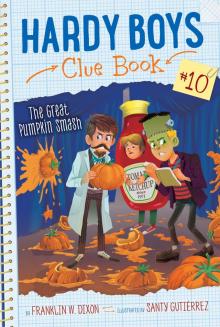 The Great Pumpkin Smash
The Great Pumpkin Smash Who Let the Frogs Out?
Who Let the Frogs Out?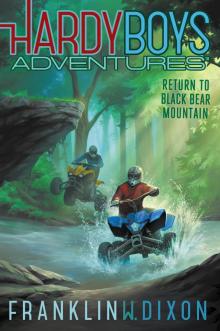 Return to Black Bear Mountain
Return to Black Bear Mountain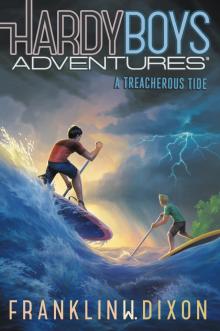 A Treacherous Tide
A Treacherous Tide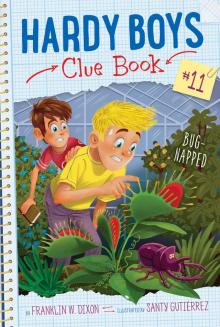 Bug-Napped
Bug-Napped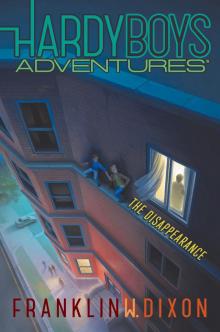 The Disappearance
The Disappearance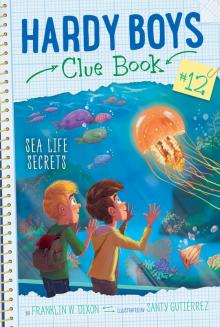 Sea Life Secrets
Sea Life Secrets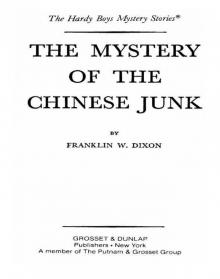 The Mystery of the Chinese Junk
The Mystery of the Chinese Junk A Skateboard Cat-astrophe
A Skateboard Cat-astrophe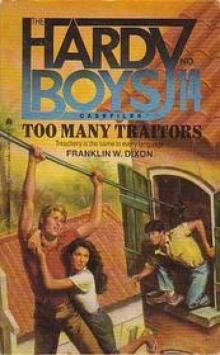 Too Many Traitors
Too Many Traitors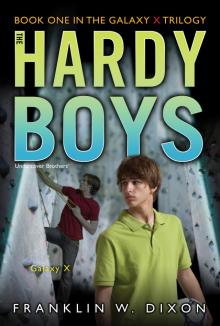 Galaxy X
Galaxy X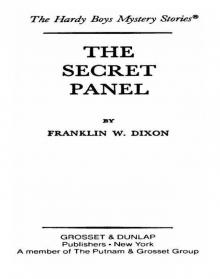 The Secret Panel
The Secret Panel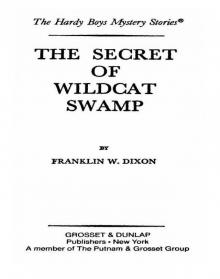 The Secret of Wildcat Swamp
The Secret of Wildcat Swamp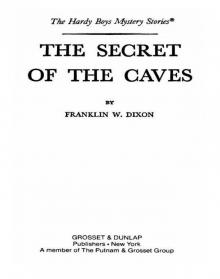 The Secret of the Caves
The Secret of the Caves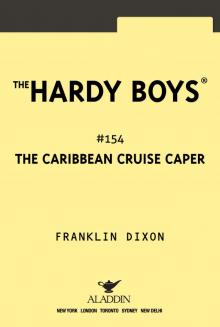 The Caribbean Cruise Caper
The Caribbean Cruise Caper Without a Trace
Without a Trace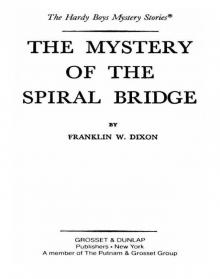 The Mystery of the Spiral Bridge
The Mystery of the Spiral Bridge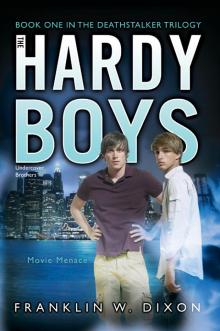 Movie Menace
Movie Menace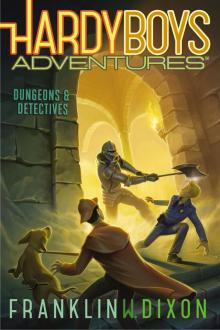 Dungeons & Detectives
Dungeons & Detectives Water-Ski Wipeout
Water-Ski Wipeout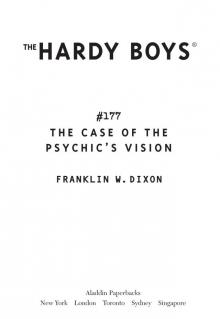 The Case of the Psychic's Vision
The Case of the Psychic's Vision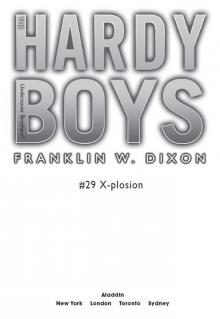 X-plosion
X-plosion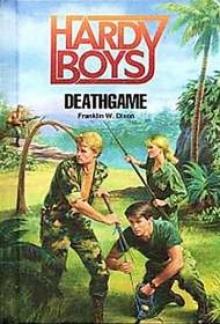 Deathgame
Deathgame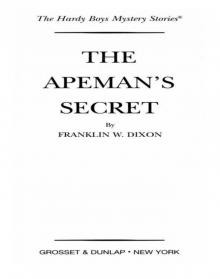 The Apeman's Secret
The Apeman's Secret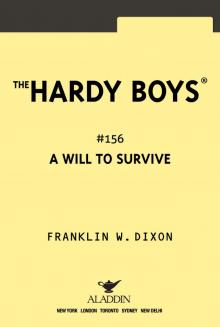 A Will to Survive
A Will to Survive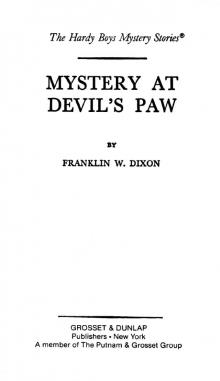 Mystery at Devil's Paw
Mystery at Devil's Paw Blood Money
Blood Money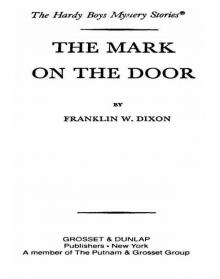 The Mark on the Door
The Mark on the Door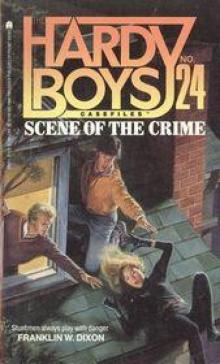 Scene of the Crime
Scene of the Crime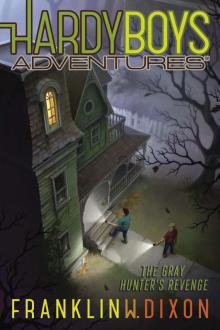 The Gray Hunter's Revenge
The Gray Hunter's Revenge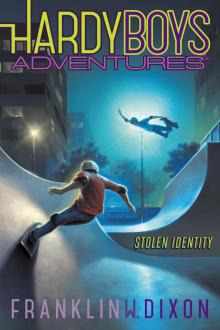 Stolen Identity
Stolen Identity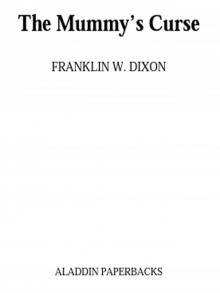 The Mummy's Curse
The Mummy's Curse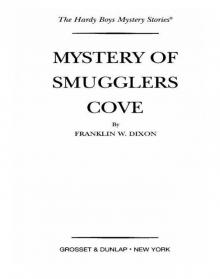 Mystery of Smugglers Cove
Mystery of Smugglers Cove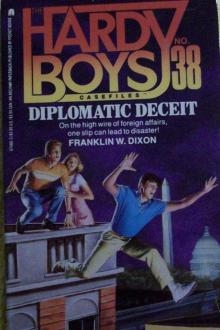 Diplomatic Deceit
Diplomatic Deceit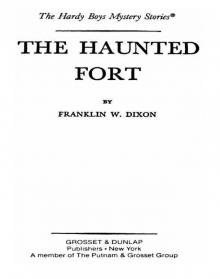 The Haunted Fort
The Haunted Fort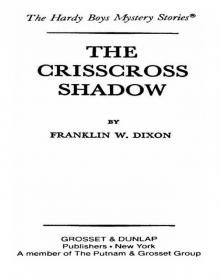 The Crisscross Shadow
The Crisscross Shadow Secret of the Red Arrow
Secret of the Red Arrow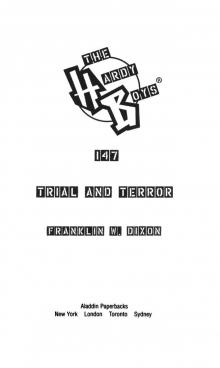 Trial and Terror
Trial and Terror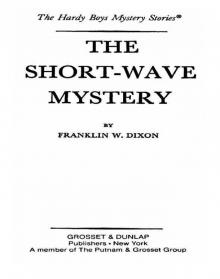 The Short-Wave Mystery
The Short-Wave Mystery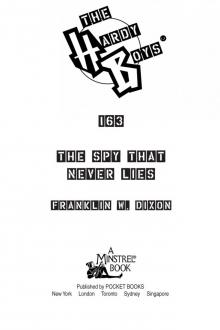 The Spy That Never Lies
The Spy That Never Lies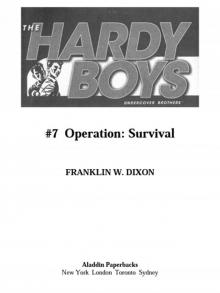 Operation: Survival
Operation: Survival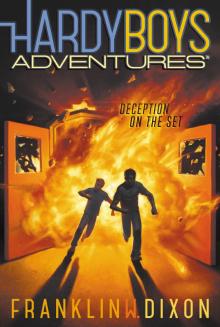 Deception on the Set
Deception on the Set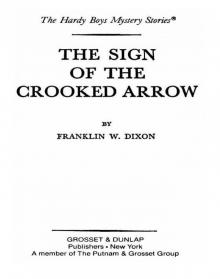 The Sign of the Crooked Arrow
The Sign of the Crooked Arrow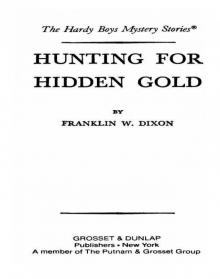 Hunting for Hidden Gold
Hunting for Hidden Gold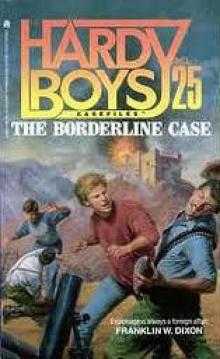 Disaster for Hire
Disaster for Hire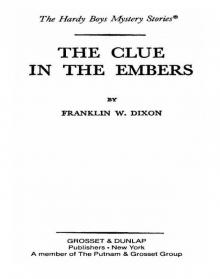 The Clue in the Embers
The Clue in the Embers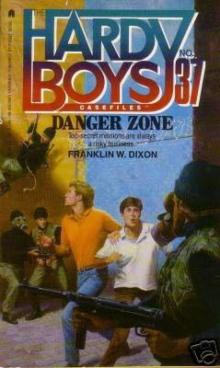 Danger Zone
Danger Zone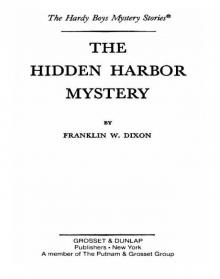 The Hidden Harbor Mystery
The Hidden Harbor Mystery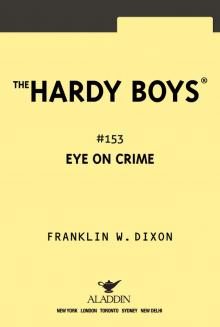 Eye on Crime
Eye on Crime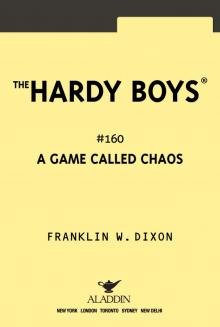 A Game Called Chaos
A Game Called Chaos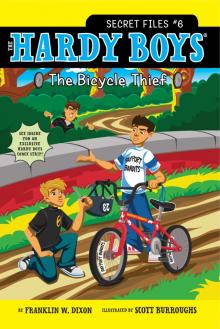 The Bicycle Thief
The Bicycle Thief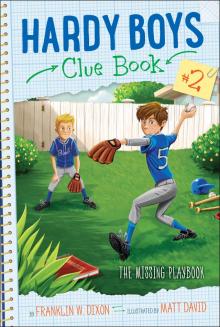 The Missing Playbook
The Missing Playbook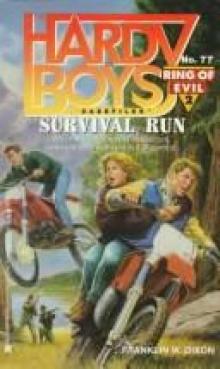 Survival Run
Survival Run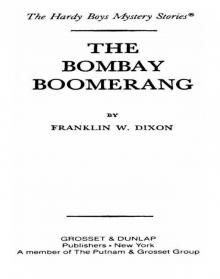 The Bombay Boomerang
The Bombay Boomerang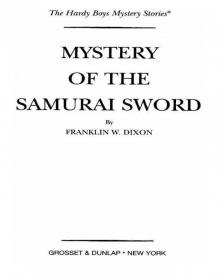 Mystery of the Samurai Sword
Mystery of the Samurai Sword Burned
Burned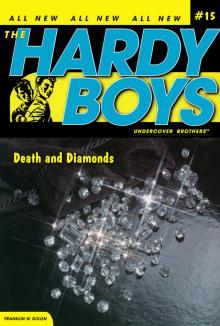 Death and Diamonds
Death and Diamonds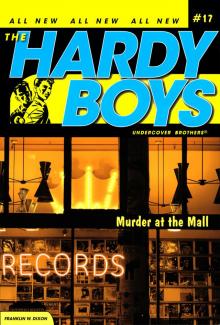 Murder at the Mall
Murder at the Mall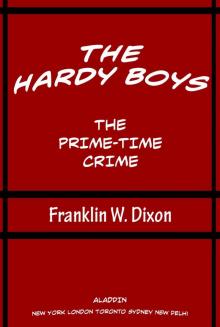 The Prime-Time Crime
The Prime-Time Crime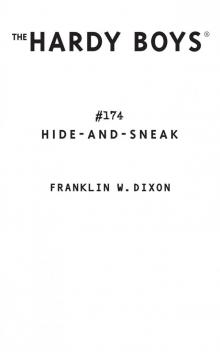 Hide-and-Sneak
Hide-and-Sneak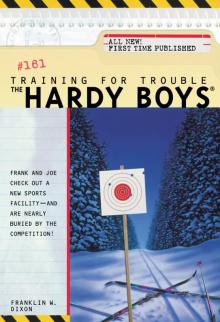 Training for Trouble
Training for Trouble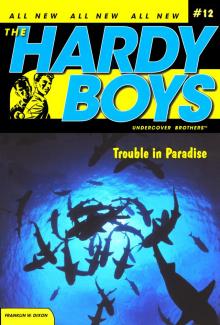 Trouble in Paradise
Trouble in Paradise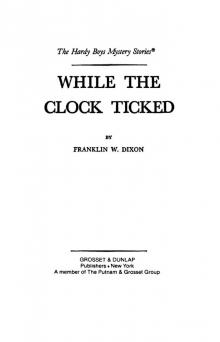 While the Clock Ticked
While the Clock Ticked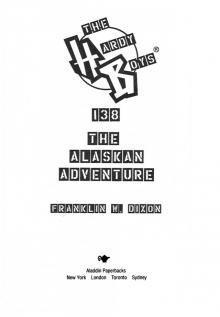 The Alaskan Adventure
The Alaskan Adventure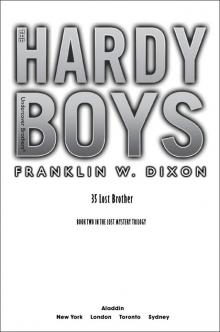 The Lost Brother
The Lost Brother Tunnel of Secrets
Tunnel of Secrets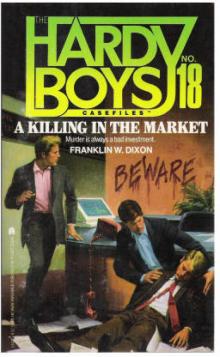 A Killing in the Market
A Killing in the Market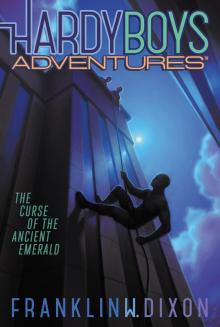 The Curse of the Ancient Emerald
The Curse of the Ancient Emerald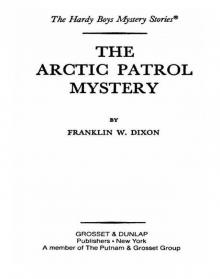 The Arctic Patrol Mystery
The Arctic Patrol Mystery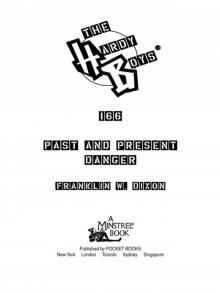 Past and Present Danger
Past and Present Danger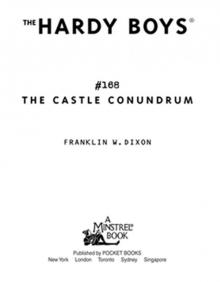 The Castle Conundrum (Hardy Boys)
The Castle Conundrum (Hardy Boys)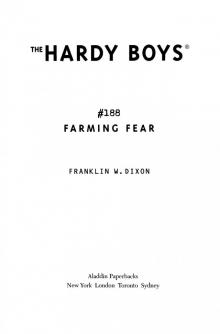 Farming Fear
Farming Fear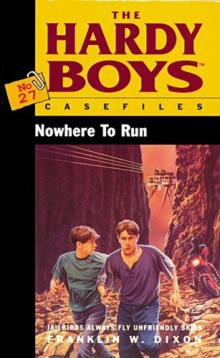 Nowhere to Run
Nowhere to Run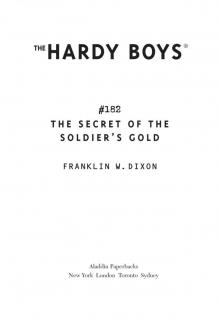 The Secret of the Soldier's Gold
The Secret of the Soldier's Gold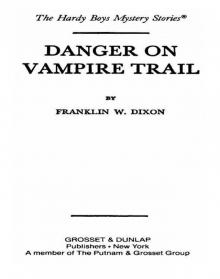 Danger on Vampire Trail
Danger on Vampire Trail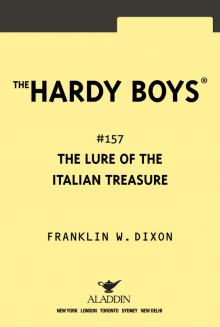 The Lure of the Italian Treasure
The Lure of the Italian Treasure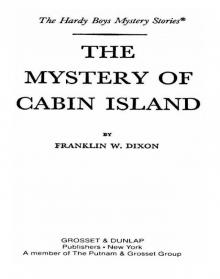 The Mystery of Cabin Island
The Mystery of Cabin Island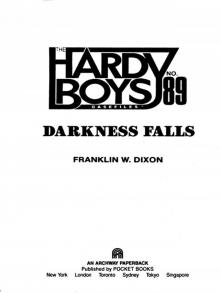 Darkness Falls
Darkness Falls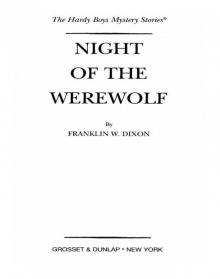 Night of the Werewolf
Night of the Werewolf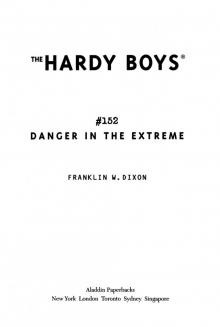 Danger in the Extreme
Danger in the Extreme The Lazarus Plot
The Lazarus Plot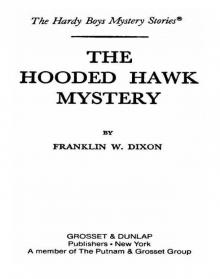 The Hooded Hawk Mystery
The Hooded Hawk Mystery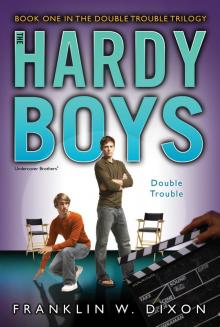 Double Trouble
Double Trouble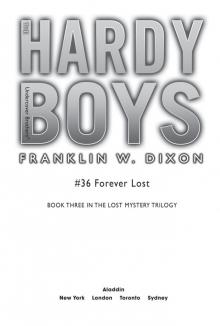 Forever Lost
Forever Lost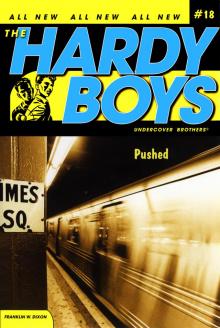 Pushed
Pushed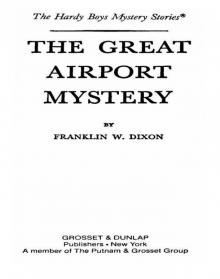 The Great Airport Mystery
The Great Airport Mystery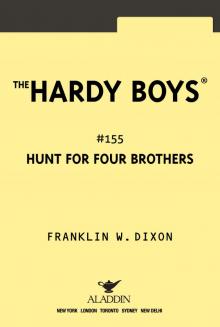 The Hunt for Four Brothers
The Hunt for Four Brothers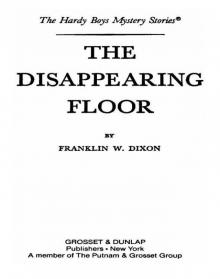 The Disappearing Floor
The Disappearing Floor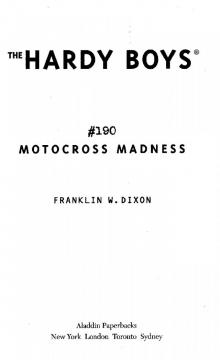 Motocross Madness
Motocross Madness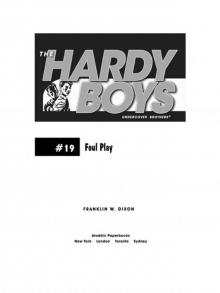 Foul Play
Foul Play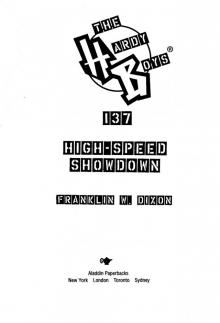 High-Speed Showdown
High-Speed Showdown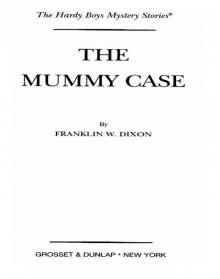 The Mummy Case
The Mummy Case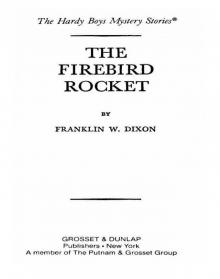 The Firebird Rocket
The Firebird Rocket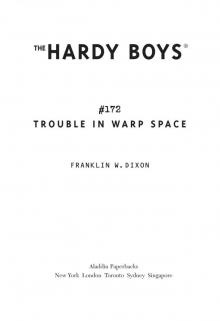 Trouble in Warp Space
Trouble in Warp Space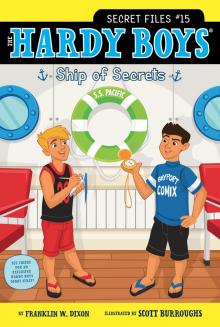 Ship of Secrets
Ship of Secrets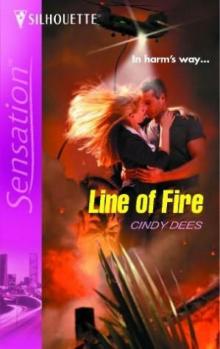 Line of Fire
Line of Fire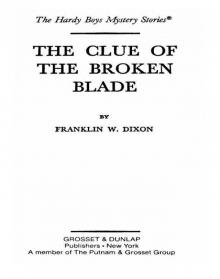 The Clue of the Broken Blade
The Clue of the Broken Blade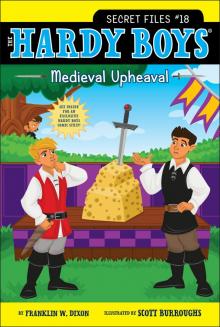 Medieval Upheaval
Medieval Upheaval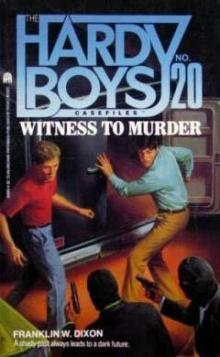 Witness to Murder
Witness to Murder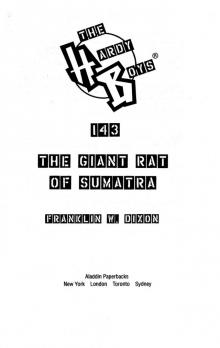 The Giant Rat of Sumatra
The Giant Rat of Sumatra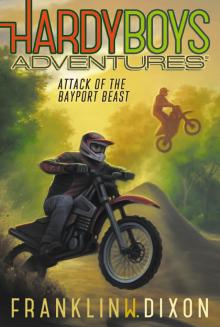 Attack of the Bayport Beast
Attack of the Bayport Beast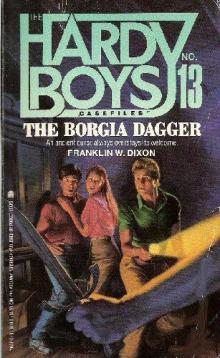 The Borgia Dagger
The Borgia Dagger Scavenger Hunt Heist
Scavenger Hunt Heist No Way Out
No Way Out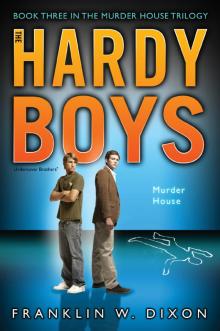 Murder House
Murder House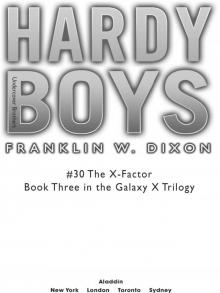 The X-Factor
The X-Factor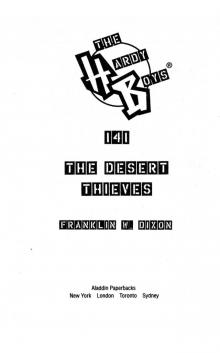 The Desert Thieves
The Desert Thieves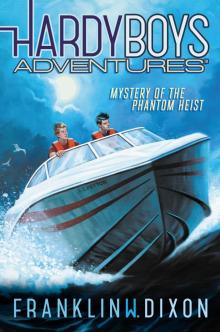 Mystery of the Phantom Heist
Mystery of the Phantom Heist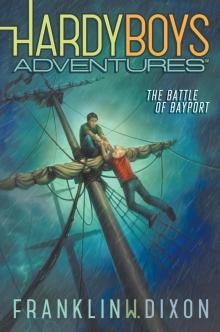 The Battle of Bayport
The Battle of Bayport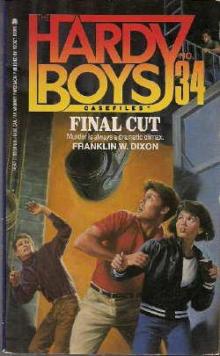 Final Cut
Final Cut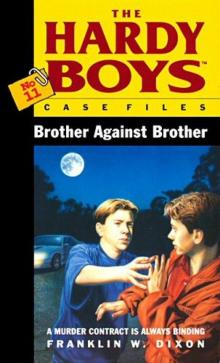 Brother Against Brother
Brother Against Brother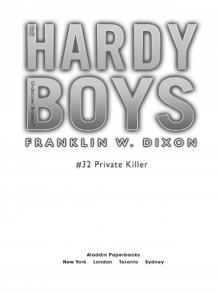 Private Killer
Private Killer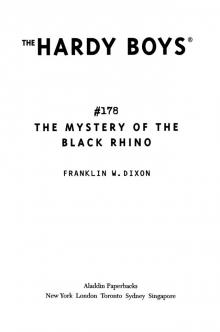 The Mystery of the Black Rhino
The Mystery of the Black Rhino Feeding Frenzy
Feeding Frenzy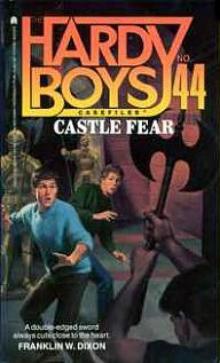 Castle Fear
Castle Fear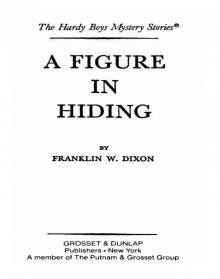 A Figure in Hiding
A Figure in Hiding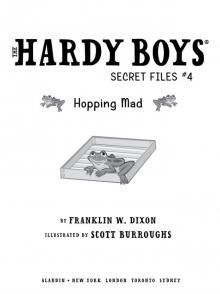 Hopping Mad
Hopping Mad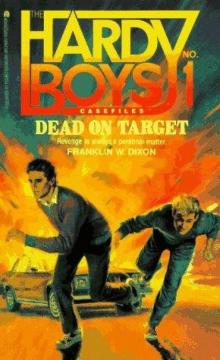 Dead on Target
Dead on Target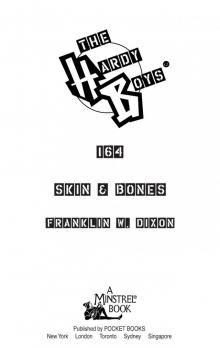 Skin and Bones
Skin and Bones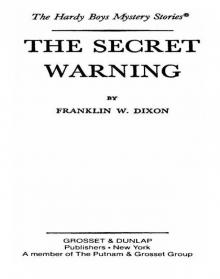 The Secret Warning
The Secret Warning Flesh and Blood
Flesh and Blood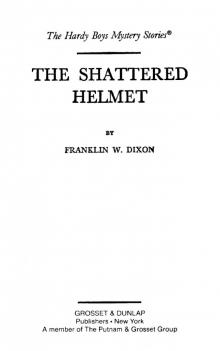 The Shattered Helmet
The Shattered Helmet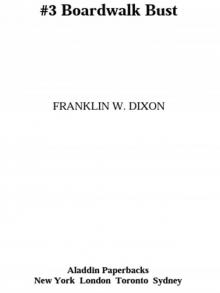 Boardwalk Bust
Boardwalk Bust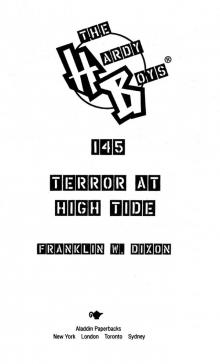 Terror at High Tide
Terror at High Tide In Plane Sight
In Plane Sight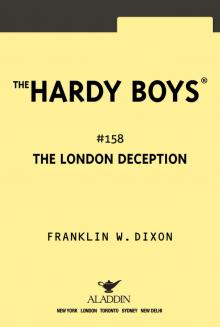 The London Deception
The London Deception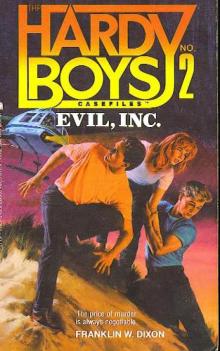 Evil, Inc.
Evil, Inc.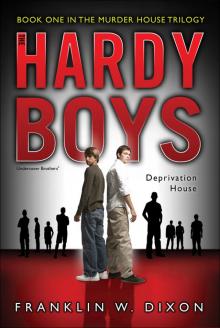 Deprivation House
Deprivation House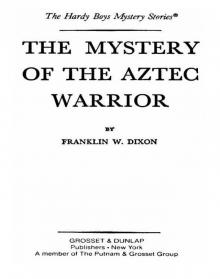 The Mystery of the Aztec Warrior
The Mystery of the Aztec Warrior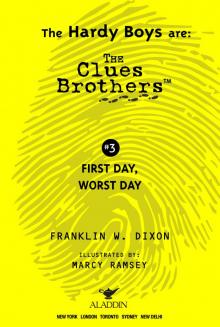 First Day, Worst Day
First Day, Worst Day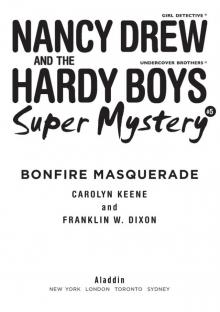 Bonfire Masquerade
Bonfire Masquerade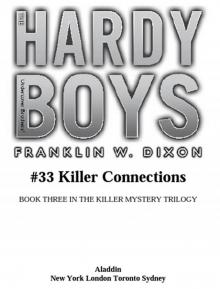 Killer Connections
Killer Connections Strategic Moves
Strategic Moves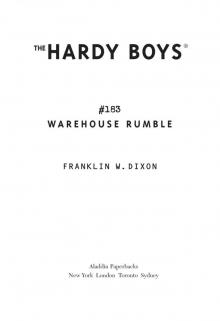 Warehouse Rumble
Warehouse Rumble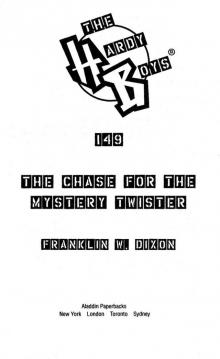 The Chase for the Mystery Twister
The Chase for the Mystery Twister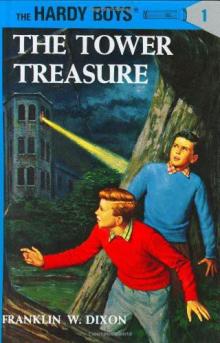 The Tower Treasure thb-1
The Tower Treasure thb-1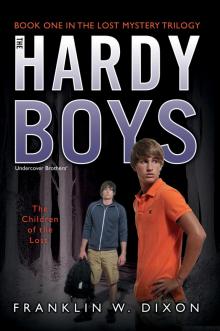 The Children of the Lost
The Children of the Lost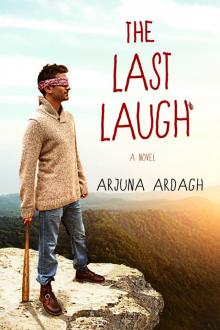 The Last Laugh
The Last Laugh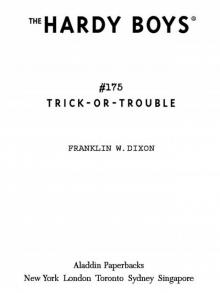 Trick-or-Trouble
Trick-or-Trouble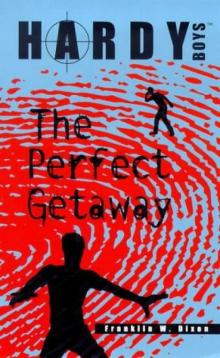 Perfect Getaway
Perfect Getaway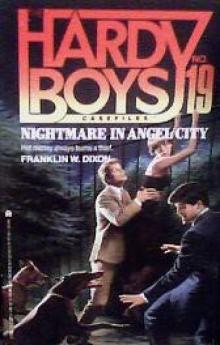 Nightmare in Angel City
Nightmare in Angel City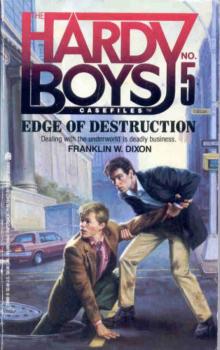 Edge of Destruction
Edge of Destruction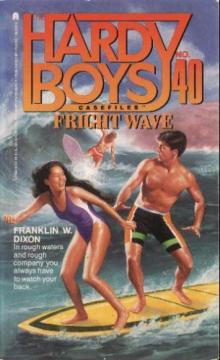 Fright Wave
Fright Wave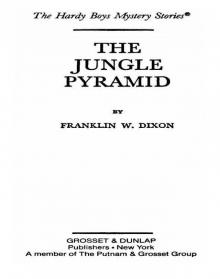 The Jungle Pyramid
The Jungle Pyramid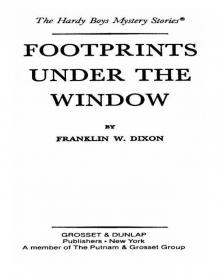 Footprints Under the Window
Footprints Under the Window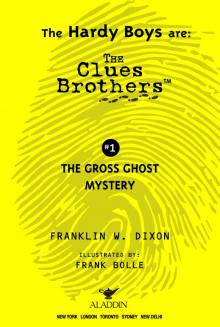 The Gross Ghost Mystery
The Gross Ghost Mystery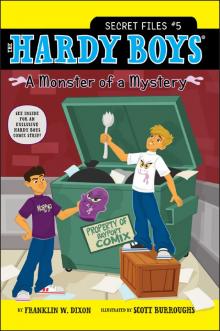 A Monster of a Mystery
A Monster of a Mystery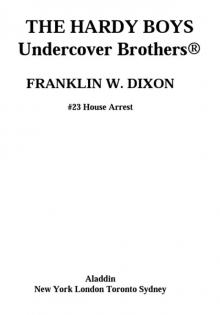 House Arrest
House Arrest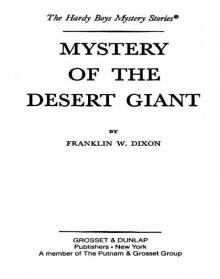 Mystery of the Desert Giant
Mystery of the Desert Giant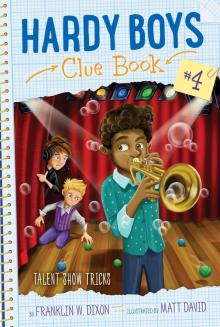 Talent Show Tricks
Talent Show Tricks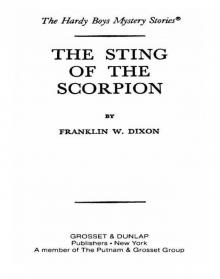 The Sting of the Scorpion
The Sting of the Scorpion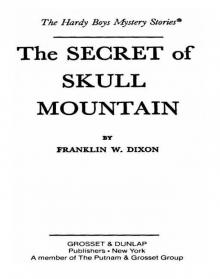 The Secret of Skull Mountain
The Secret of Skull Mountain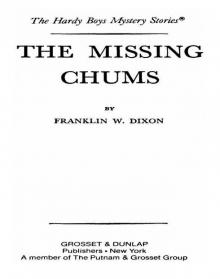 The Missing Chums
The Missing Chums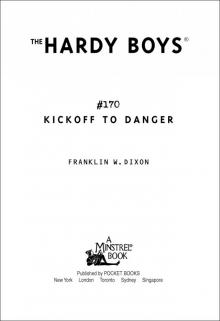 Kickoff to Danger
Kickoff to Danger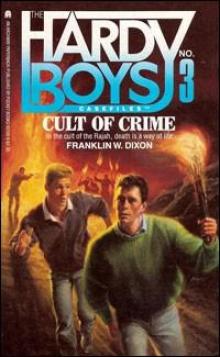 Cult of Crime
Cult of Crime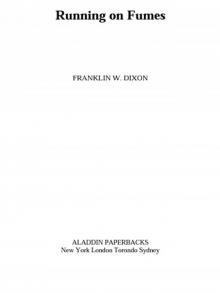 Running on Fumes
Running on Fumes Martial Law
Martial Law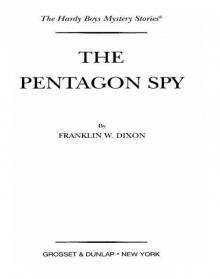 The Pentagon Spy
The Pentagon Spy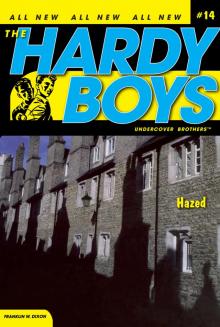 Hazed
Hazed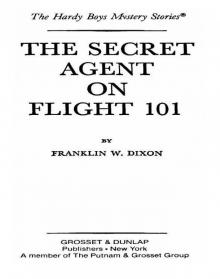 The Secret Agent on Flight 101
The Secret Agent on Flight 101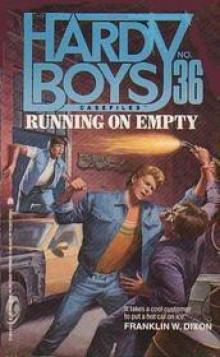 Running on Empty
Running on Empty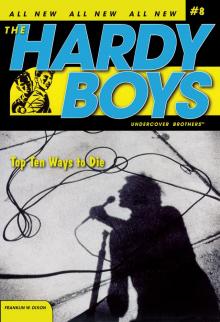 Top Ten Ways to Die
Top Ten Ways to Die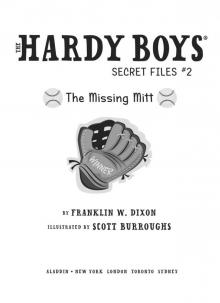 The Missing Mitt
The Missing Mitt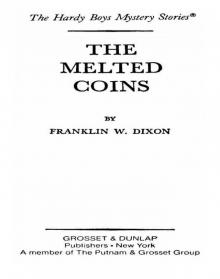 The Melted Coins
The Melted Coins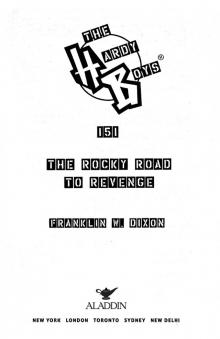 The Rocky Road to Revenge
The Rocky Road to Revenge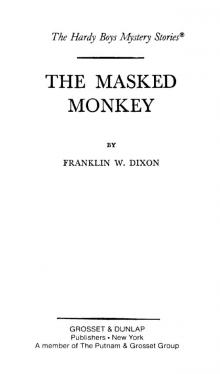 The Masked Monkey
The Masked Monkey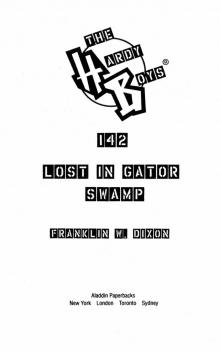 Lost in Gator Swamp
Lost in Gator Swamp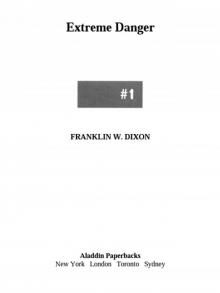 Extreme Danger
Extreme Danger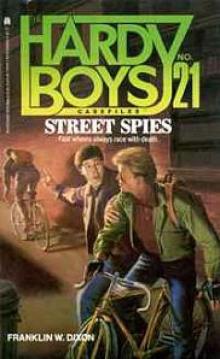 Street Spies
Street Spies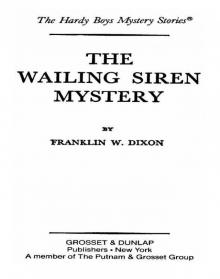 The Wailing Siren Mystery
The Wailing Siren Mystery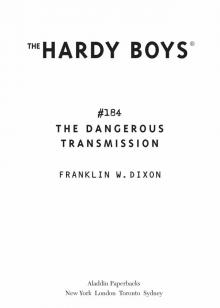 The Dangerous Transmission
The Dangerous Transmission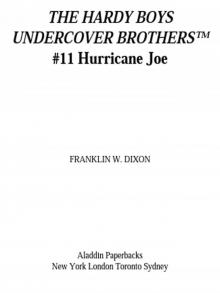 Hurricane Joe
Hurricane Joe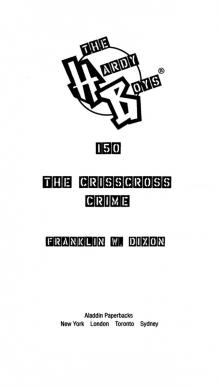 The Crisscross Crime
The Crisscross Crime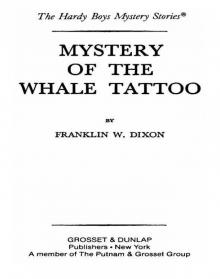 Mystery of the Whale Tattoo
Mystery of the Whale Tattoo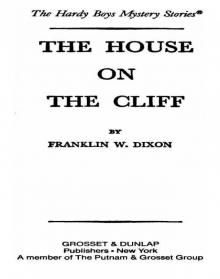 The House on the Cliff
The House on the Cliff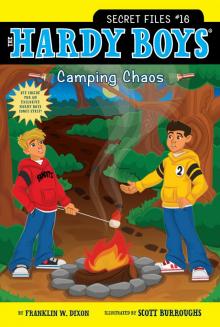 Camping Chaos
Camping Chaos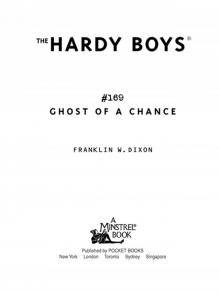 Ghost of a Chance
Ghost of a Chance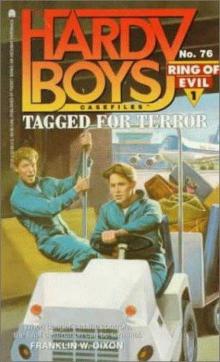 Tagged for Terror
Tagged for Terror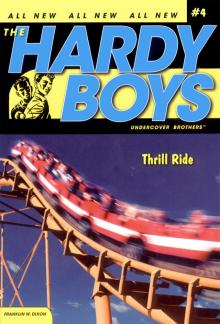 Thrill Ride
Thrill Ride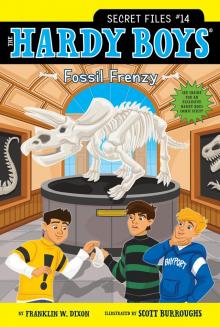 Fossil Frenzy
Fossil Frenzy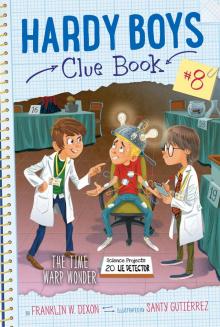 The Time Warp Wonder
The Time Warp Wonder Ghost Stories
Ghost Stories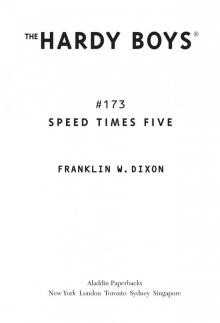 Speed Times Five
Speed Times Five What Happened at Midnight
What Happened at Midnight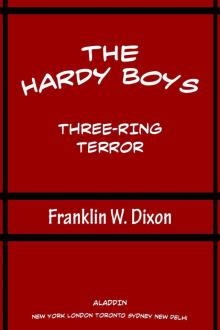 Three-Ring Terror
Three-Ring Terror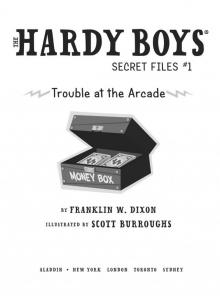 Trouble at the Arcade
Trouble at the Arcade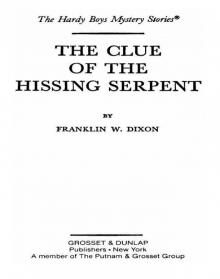 The Clue of the Hissing Serpent
The Clue of the Hissing Serpent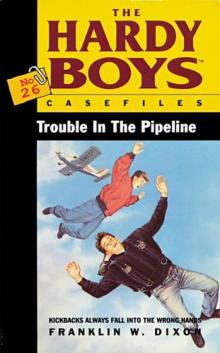 Trouble in the Pipeline
Trouble in the Pipeline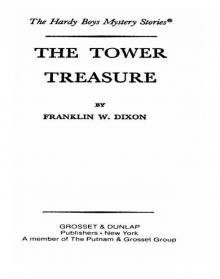 The Tower Treasure
The Tower Treasure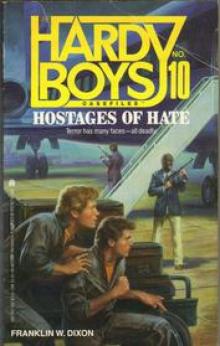 Hostages of Hate
Hostages of Hate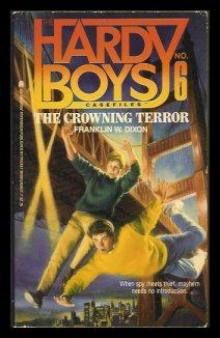 The Crowning Terror
The Crowning Terror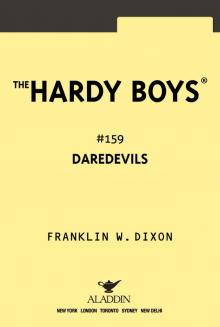 Daredevils
Daredevils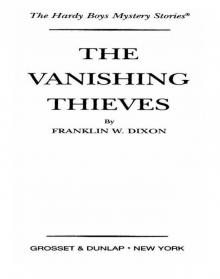 The Vanishing Thieves
The Vanishing Thieves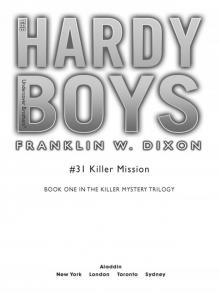 Killer Mission
Killer Mission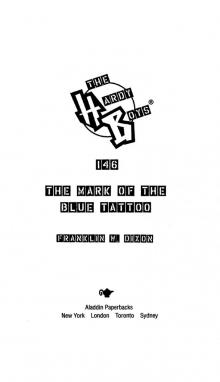 The Mark of the Blue Tattoo
The Mark of the Blue Tattoo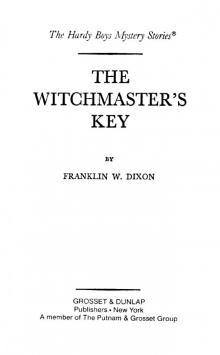 The Witchmaster's Key
The Witchmaster's Key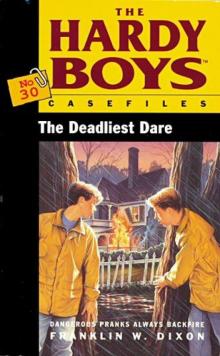 The Deadliest Dare
The Deadliest Dare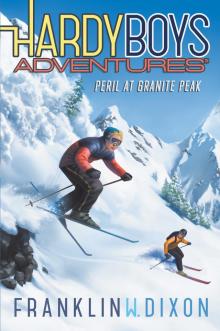 Peril at Granite Peak
Peril at Granite Peak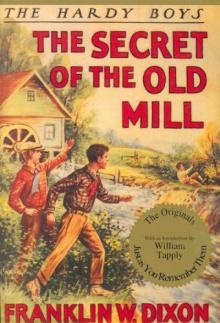 The Secret Of The Old Mill thb-3
The Secret Of The Old Mill thb-3 Rocky Road
Rocky Road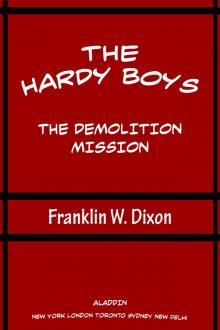 The Demolition Mission
The Demolition Mission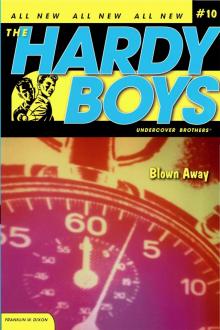 Blown Away
Blown Away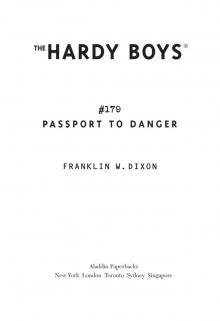 Passport to Danger
Passport to Danger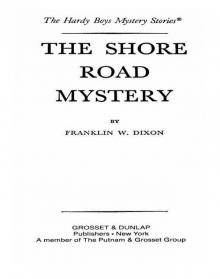 The Shore Road Mystery
The Shore Road Mystery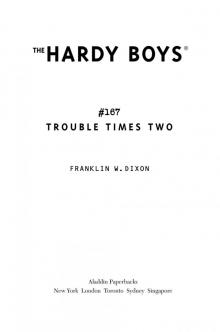 Trouble Times Two
Trouble Times Two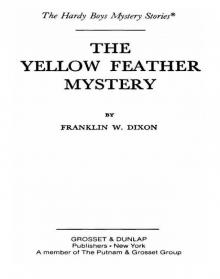 The Yellow Feather Mystery
The Yellow Feather Mystery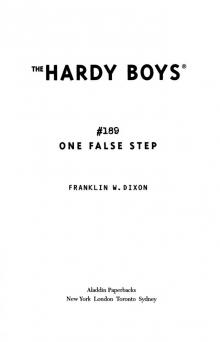 One False Step
One False Step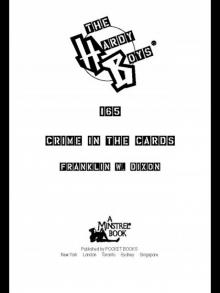 Crime in the Cards
Crime in the Cards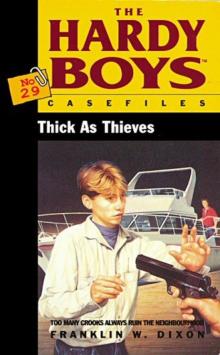 Thick as Thieves
Thick as Thieves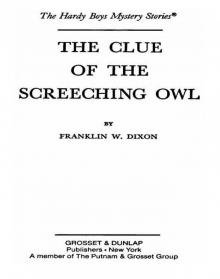 The Clue of the Screeching Owl
The Clue of the Screeching Owl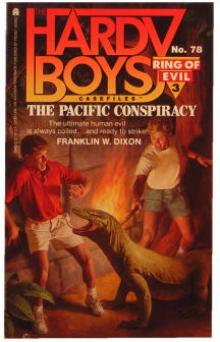 The Pacific Conspiracy
The Pacific Conspiracy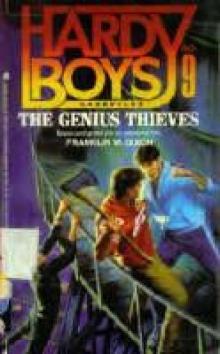 The Genius Thieves
The Genius Thieves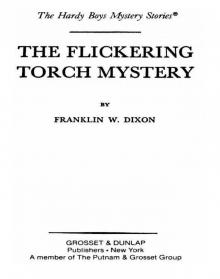 The Flickering Torch Mystery
The Flickering Torch Mystery Into Thin Air
Into Thin Air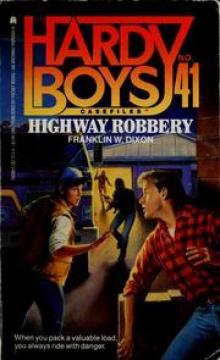 Highway Robbery
Highway Robbery Deadfall
Deadfall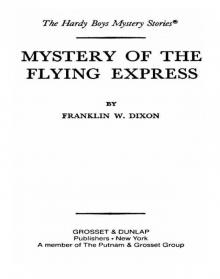 Mystery of the Flying Express
Mystery of the Flying Express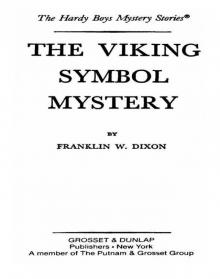 The Viking Symbol Mystery
The Viking Symbol Mystery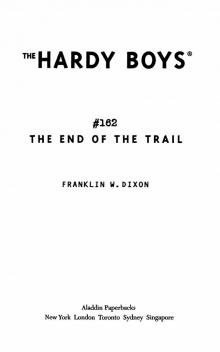 The End of the Trail
The End of the Trail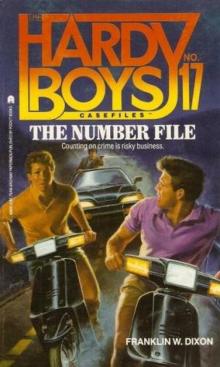 The Number File
The Number File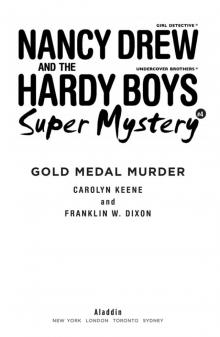 Gold Medal Murder
Gold Medal Murder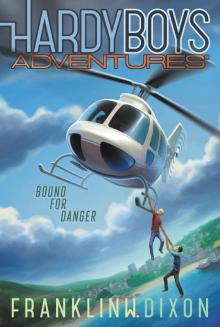 Bound for Danger
Bound for Danger Collision Course
Collision Course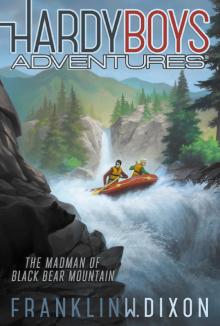 The Madman of Black Bear Mountain
The Madman of Black Bear Mountain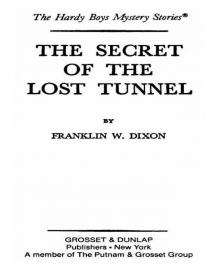 The Secret of the Lost Tunnel
The Secret of the Lost Tunnel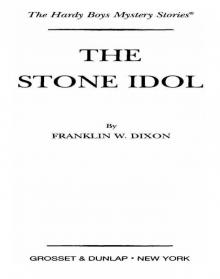 The Stone Idol
The Stone Idol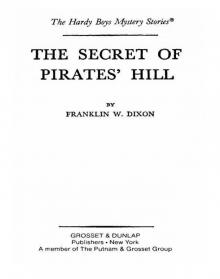 The Secret of Pirates' Hill
The Secret of Pirates' Hill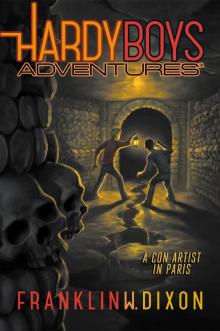 A Con Artist in Paris
A Con Artist in Paris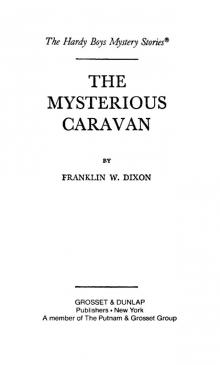 The Mysterious Caravan
The Mysterious Caravan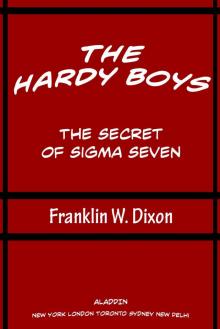 The Secret of Sigma Seven
The Secret of Sigma Seven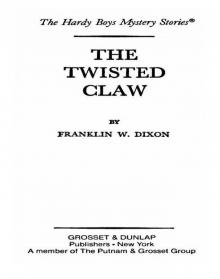 The Twisted Claw
The Twisted Claw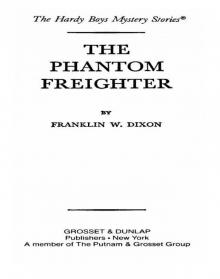 The Phantom Freighter
The Phantom Freighter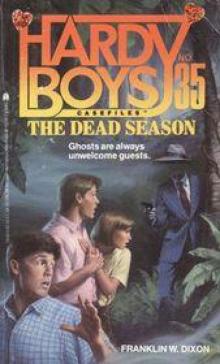 The Dead Season
The Dead Season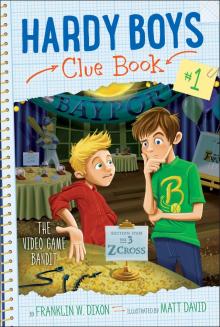 The Video Game Bandit
The Video Game Bandit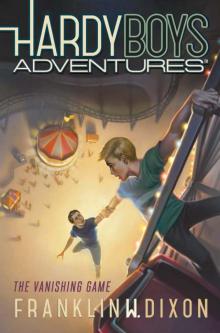 The Vanishing Game
The Vanishing Game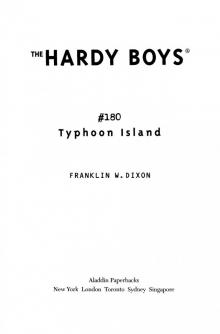 Typhoon Island
Typhoon Island